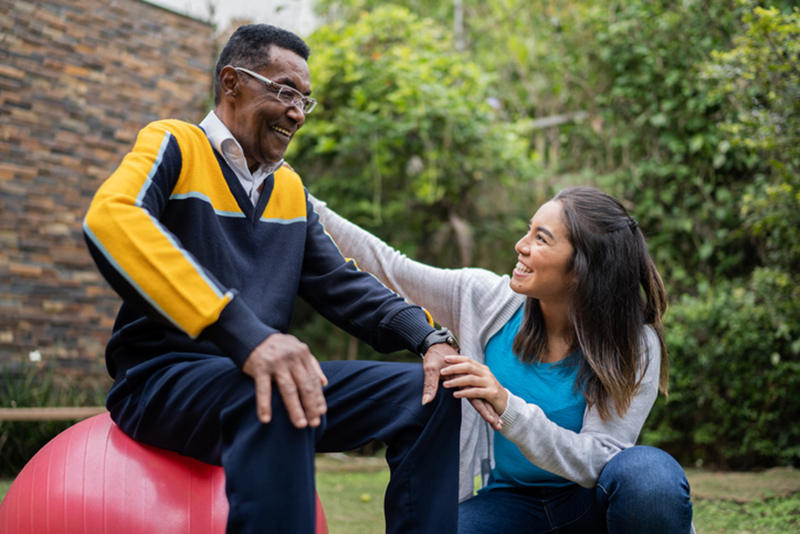
Home care can be a huge help after a stroke and support recovery in a number of ways.
Experiencing a stroke is a scary, unexpected event. The effects can be minor to life-altering, but one thing is clear: follow-up care and help after a stroke is imperative. Fortunately, a great deal of this care is able to be provided at home. If you’re caring for someone post-stroke, below are some of the ways you can help guarantee the most effective recovery.
What are the Best Strategies to Help Someone at Home Following a Stroke?
A key first step is speaking with the person’s healthcare provider. Find out as much as possible about what may have caused the stroke, what the expected outcome is, and what they recommend for a treatment and rehabilitation plan. It’s also a smart idea to request resources from the doctor about strokes. Education will be important in your ability to deliver the best support.
In addition, our home care experts recommend the following tips:
- Start a diary. A plain notebook or digital document is all you will need. Begin with a baseline entry on the person’s physical and emotional state, any medications being taken, eating and sleeping habits, etc. It is normal for new stroke symptoms to occur months after a stroke, and any changes need to be brought to the doctor’s attention as quickly as possible.
- Offer encouragement. Adhering to the doctor’s recommended changes in lifestyle isn’t always easy. It’s likely there will be a rehab exercise plan to follow, as daily physical exercise is a good recovery tool for both the brain and the body. Encourage the person to take part in these activities precisely as directed. Joining in to exercise together is an effective way to make sure the person complies with doctor’s orders.
- Avoid taking over. You may be inclined to want to do as much as possible for the person, in order for them to rest and not overexert themselves. Still, it’s important for the individual to do as much on their own as possible in order to optimize recovery. Step in when absolutely required with just enough help to allow them to complete a challenging task.
- Have patience. The healing process post-stroke can take a substantial amount of time, and there will likely be a few challenges during this process. The person may also experience pseudobulbar affect, which causes abrupt bouts of crying or laughing for no apparent reason. They might also experience anxiety and fear of another stroke occurring, grief, or depression. These sorts of emotional changes may be distressing for both of you, but treatment is available to help.
- Look after yourself. Caregiving for someone you love following a stroke can be emotionally and physically exhausting. Be sure to establish appropriate boundaries to prevent caregiver stress and burnout. Enlist the help of other loved ones, friends, or a skilled caregiver to allow you time to step back to take care of your own health and wellness.
The Crucial Role of Home Care Post-Stroke
An in-home caregiver should be an integral part of a person’s recovery following a stroke. A few of the many ways At-Home Care Company, a trusted provider of senior care in Clive, IA and the surrounding areas, can help include:
- Providing fall prevention as well as other home modification suggestions for improved safety and independence
- Offering transport and accompaniment to medical appointments and procedures
- Running errands, such as picking up prescriptions and groceries
- Serving as a friendly companion for conversations, help with engaging in exercise programs, playing fun and mind-stimulating games, etc.
- Helping with personal hygiene needs
- And much more
Contact At-Home Care Company at 515-292-2650 to find out how our fully trained and experienced caregivers can ensure an easier recovery for someone you love after a stroke.
